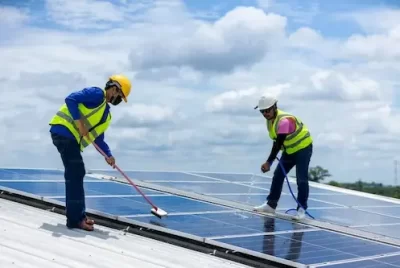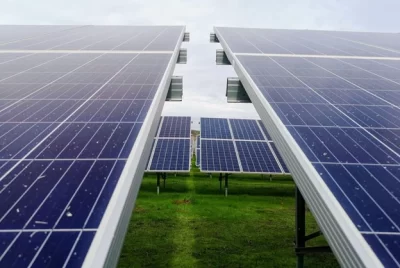What To Know Before You Buy First Solar Panels
We may earn a commission for purchases made using our links. See our disclosure to learn more.
The move from conventional power sources, such as fossil fuels, to renewable energy sources has been nothing short of a paradigm shift. At the forefront of this shift is solar power, with a rapidly increasing number of households and commercial establishments making the switch. While the reasons are multifold, two primary incentives are the environmental benefits and the prospect of long-term financial savings. But, like all major transitions, the shift to solar power demands thorough preparation and a holistic understanding of what the process entails. This article aims to provide a comprehensive guide on what to know before you buy first solar panels.
Understanding Solar Panel Usage
Before taking the plunge, it’s paramount to comprehend the mechanics of solar power. Solar panels are essentially devices that translate sunlight into usable electricity. The key component here is the photovoltaic (PV) cell. These cells trap photons (light particles) from the sun. When these photons are absorbed, they release electrons, resulting in the generation of electric current. This phenomenon, known as the photovoltaic effect, is the foundation of solar energy conversion.
Evaluate Your Energy Needs
Assess Current Consumption: Begin your solar journey by becoming aware of your existing energy habits. Scrutinize your electricity bills from the last 12 months. This will provide insights into your average monthly consumption and help you notice any seasonal trends in your energy usage.
Estimate Future Usage: Life is dynamic, and so are our energy requirements. You might be contemplating purchasing an electric car, adding a home extension, or even welcoming a new member to your family. These life changes can cause a surge in energy needs, so factor them into your calculations.
Determine Solar Potential and Limitations
Geographic Location: Your geographical location plays a crucial role in determining the efficiency of your solar panels. Locations nearer to the equator typically receive more direct sunlight.
Roof Angle and Direction: For optimum energy absorption, the solar panels should face the sun most of the day. In the Northern Hemisphere, a south-facing roof is ideal.
Shadow Analysis: Potential obstructions like trees, taller buildings, or chimneys can cast shadows on the panels, reducing their efficiency. A shadow analysis can help identify and address these concerns.
Choose the Right Solar Panels
Solar panels come in various types and efficiencies. The two main types are:
Monocrystalline Panels: Made from a single crystal structure, they are more efficient but also more expensive.
Polycrystalline Panels: Made from multiple crystal structures, they are slightly less efficient but more affordable.
Choose a panel type that aligns with your budget and energy needs.
Budgeting and Financing
Initial Investment: Understand that solar panels require an initial investment. This includes the cost of the panels, inverters, mounting systems, and installation.
Incentives and Rebates: Many governments offer incentives, tax credits, and rebates to promote solar energy usage. Ensure you’re aware of all the incentives available in your area.
Financing Options: If you cannot afford the initial investment, explore financing options. Many solar providers offer help with financing schemes to make the transition smoother.
Select a Reputable Solar Installer
Check Credentials: Ensure that your installer is accredited and has a good track record.
Read Reviews: Go through online reviews and testimonials to gauge their reliability and quality of service.
Get Multiple Quotes: Approach several installers for quotes. This will not only get you the best price but also allow you to understand various offerings in the market.
Understand Maintenance Requirements
Solar technology has come a long way in recent years, resulting in robust and durable solar panels. However, to ensure the longevity and optimal performance of your solar system, occasional maintenance is crucial. This doesn’t necessarily mean constant tinkering or hefty bills. Instead, understanding basic maintenance can save you significant time and money in the long run.
Cleaning
Solar panels, being exposed to the elements, are susceptible to accumulating dirt, dust, bird droppings, and other forms of debris. This layer of grime can hinder the panels from absorbing sunlight, subsequently decreasing their efficiency.
Depending on your location, the general recommendation after you buy first solar panels is to clean your solar panels at least twice a year. In areas with higher pollution or dust levels, more frequent cleaning may be necessary. You can either hire professionals or do it yourself using soft brushes, mild soap, and water. Always ensure safety measures, especially if your panels are on a steep roof.
Regular Checkups
Over time, the external elements, from scorching sun to freezing snow, can wear out the components. Regular inspections can preempt potential issues, ensuring that your system works seamlessly.
An annual check-up by a professional solar technician is advisable. They can assess the physical condition of the panels, mounting equipment, and electrical connections, ensuring that the entire system functions at its best.
Plan for Net Metering
Net metering is an innovative arrangement that benefits both homeowners and utility providers. This system allows homeowners to contribute to the broader power grid, fostering a more sustainable community energy approach.
Check Availability
Given that net metering policies can vary significantly from one region to another, it’s vital to get acquainted with your local policies. While many regions have adopted net metering, others may have restrictions or different structures in place.
Reach out to your local utility company for specifics on net metering. They can provide detailed information about availability, application procedures, and any other requirements.
Understand the Benefits Before You Buy First Solar Panels
One of the key benefits of net metering is the potential for reduced electricity bills. In months where your panels produce excess energy, this surplus can be sent back to the grid, earning you credits. These credits can then offset costs in months when your solar production might be lower.
Beyond personal benefits, by participating in net metering, you contribute to reducing the strain on the grid during peak times, promoting a more resilient and sustainable power infrastructure.
Be Ready for the Transition
Transitioning to solar energy, like any significant change, requires some preparation. It’s not merely about the physical setup but also about being mentally and logistically prepared for a different way of sourcing power.
Backup Systems
Even with the most efficient solar panel system, there will be times, like during prolonged cloudy or rainy spells, when the panels might not produce enough electricity to meet your needs.
Investing in a home battery storage system allows you to store excess energy produced on sunny days. Alternatively, having a backup generator can also be beneficial, ensuring you’re never left in the dark.
Educate Everyone in the Household
A well-informed household can make the most out of the solar system. This means understanding the nuances of energy consumption, the best times for high-energy tasks, and basic troubleshooting.
Consider having the installer or an expert conduct a small session for all household members before you buy first solar panels. This ensures everyone is on the same page and can make the most of the solar panels, ensuring a smooth and efficient transition.
Conclusion
Adopting solar panel usage is a commendable step towards a sustainable future. With the right preparation, transitioning can be smooth and highly beneficial. Remember, while the initial investment may seem substantial, the long-term benefits in cost savings and reducing the carbon footprint make it a worthy endeavor. With a comprehensive understanding of your needs, diligent planning, and a reliable installer, you can harness the power of the sun effectively for years to come. Read more interesting solar power facts at Solar Power Knowledge Hub.




